Prolacta Bioscience recognizes contributions of breast milk donors during National Nutrition Month
Established in 1999, Prolacta Bioscience is a privately held life sciences company that has touched the lives of more than 100,000 premature infants globally.1
Dedicated to advancing the science of human milk, we employ more than 300 people throughout the world, many of whom have dedicated their lives to neonatal care.
Together, we’re just as committed to ethical business practices, protecting the safety of our team, and fostering an inclusive culture.
As we work to bring life-saving nutrition to critically ill, premature infants, we’re also committed to ethical business practices, protecting the safety of our team, and fostering an inclusive culture.
Prolacta is the world’s leading hospital provider of 100% human milk–based nutritional products.
Available to hospitals since 2006, our fortifiers changed the standard of care for extremely premature infants worldwide and are the first nutritional fortifiers made from 100% donor milk instead of cow milk.
We are also exploring the benefits of human milk including applications for infants who need surgery for congenital cardiac and gastrointestinal disorders.
As part of this commitment, we sponsor the International Conference on Human Milk Science and Innovation, a forum for the latest scientific and clinical research related to human milk. The annual conference hosts renowned scientists and neonatologists from around the world. We also work closely with clinicians and researchers to add to the growing scientific evidence on health benefits of human milk.
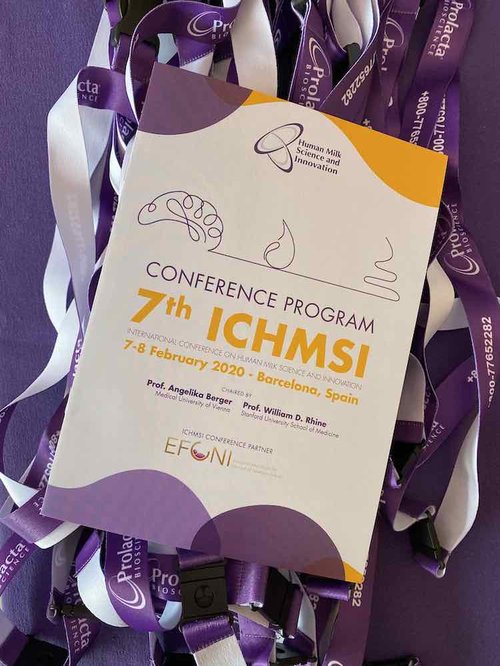
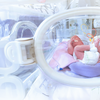
Hot Topics in Neonatology® 2024 Conference to feature symposium on clinical impact & cost savings of an Exclusive Human Milk Diet
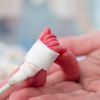
Prolacta celebrates advancements in neonatal care during Prematurity Awareness Month
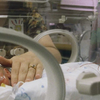
Humavant® 100% human milk-based fortifiers helping premature infants in Australia grow and develop

Prolacta Bioscience appoints Dr. Sandra Sullivan as director of clinical education and professional development

Prolacta Bioscience applauds passage of New York legislation expanding insurance coverage for human milk-based nutritional products
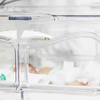
Prolacta Bioscience applauds new California state law expanding access to donor human milk for fragile infants

More than 50% of level III & IV NICUs in U.S. used Prolacta's 100% human milk-based products to help reduce Necrotizing Enterocolitis (NEC) in the smallest premature infants in 2024

Prolacta Bioscience applauds passage of the maternal health bill in Massachusetts
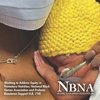
Working to address equity in premature nutrition, National Black Nurses Association and Prolacta Bioscience support H.R. 7141
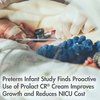
Preterm infant study finds proactive use of Prolact CR cream improves growth and reduces NICU costs

Prolacta Bioscience demonstrates leadership in human milk science with history of voluntarily reviewing health claims with the FDA
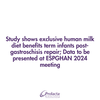
Study shows exclusive human milk diet benefits term infants post-gastroschisis repair; Data to be presented at ESPGHAN 2024 meeting

Pediatric Academic Societies Meeting includes symposium on cost-effectiveness of implementing exclusive human milk-based nutrition for premature infants

Novel research illuminates breast milk’s unique contribution to COVID-19 defense in infants

Real-world data on human milk-based fortification reveals limitations of protocol designs of two RCTs

Prolacta's human milk-based nutrition has touched the lives of 100,000 Premature and Critically Ill Infants Globally

Prolacta Bioscience recognizes advances in preterm care during NICU awareness month

Prolacta Bioscience applauds Ohio legislature for supporting Medicaid reimbursement for donor human milk-derived products

New study shows Prolacta’s human milk-based nutritional fortifiers save hospital NICUs up to $3.4M annually

Study reveals Prolacta’s 100% human milk-based nutritional fortifiers significantly increase bioactive proteins and antioxidant activity in human milk samples, outperforming cow milk-based fortifier

Prolacta Bioscience celebrates donor moms on World Human Milk Donation Day

Prolacta Bioscience recognizes contributions of breast milk donors during National Nutrition Month

The Prolacta Bioscience Foundation empowers parents and communities with over half a million dollars in grant funding in 2022

Hot Topics in Neonatology 2022 Conference will include symposium on benefits of vat pasteurization for human donor milk

Prolacta Clinical Advisory Board members present webinar on improved growth metrics for preterm infants fed an exclusive human milk diet

Prolacta Bioscience celebrates Prematurity Awareness Month and World Prematurity Day by recognizing the contributions of breast milk donors, parents of premature infants, and the NICU teams who care for them

New study finds improved long-term neurodevelopmental outcomes for extremely premature infants fed Prolacta’s exclusive human milk diet (EHMD)

Breaking data on the efficacy and cost-effectiveness of an exclusive human milk diet for premature infants to be presented at the American Academy of Pediatrics 2022 National Conference

New peer-reviewed study finds vat pasteurization retains molecular structure of naturally occurring bioactive proteins in human donor milk, similar to raw breast milk

Prolacta Bioscience recognizes nurses caring for fragile infants every day throughout Neonatal Nurses Week and NICU Awareness Month

Prolacta Bioscience celebrated Breastfeeding Awareness Month by recognizing the commitment of NICU parents to their infants’ health

Prolacta Bioscience Appoints Dr. Erin Hamilton Spence as Director of Clinical Education and Professional Development

Multiple peer-reviewed studies show Prolacta’s 100% human milk-based nutritional fortifiers reduce risk of life-threatening comorbidities in premature infants, compared to cow milk-based nutrition

Prolacta Bioscience introduces its first evidence-based feeding protocol for an exclusive human milk diet in the NICU

Prolacta Bioscience appoints David Steinberg as chief financial officer

International Conference on Human Milk Science & Innovation to discuss latest research on bioactivity and neurodevelopment

Alecia-Jane Twigger, Ph.D., wins the Ruth A. Lawrence Investigator Award for outstanding contributions to advancing human milk science

Independent, head-to-head study shows significant health benefits of early fortification associated with Prolacta Bioscience’s 100% human milk-based fortifiers compared to cow milk-based fortifiers for premature infants

Should human milk-based nutritional products for premature infants be homogenized? More research is needed, new journal article says

Prolacta Bioscience enrolls first infant in Japan-based clinical trial to evaluate the effect of an Exclusive Human Milk Diet on growth and safety in premature infants

Prolacta Bioscience Appoints Dr. Anne Beal to Board of Directors

Prolacta Bioscience Develops World’s First Test to Directly Detect Bacteria and Viruses, Including SARS-CoV-2, in Donor Breast Milk

Prolacta Bioscience Celebrates Prematurity Awareness Month by Recognizing Breast Milk Donors for Their Contributions to Premature Infants in the NICU

Mindy Fuzesy presents at Association of Women's Health, Obstetric and Neonatal Nurses 2021 virtual convention

Late-onset sepsis reduced in premature infants fed Prolacta’s 100% human milk-based fortifiers as part of an exclusive human milk diet

Prolacta Bioscience continues Advancing the Science of Human Milk, proud to partner with NICU teams in saving lives of premature infants

Association of Women’s Health, Obstetric, & Neonatal Nurses (AWHONN) encourages an exclusive human milk diet (EHMD) for vulnerable preterm infants in the neonatal intensive care unit (NICU)

Prolacta Bioscience hosts panel session on the need for uniform human milk safety standards at 2021 National Coalition for Infant Health Summit

Prolacta Bioscience supports Breastfeeding Awareness Month with donation of breast pumps to Alliance for Black NICU Families

Prolacta Bioscience congratulates Carolyn TenEyck, RN, on lifetime achievement award from National Black Nurses Association

Enrollment completed in clinical trial evaluating effect of exclusive human milk diet including a specialty fortifier in term infants born with single ventricle physiology